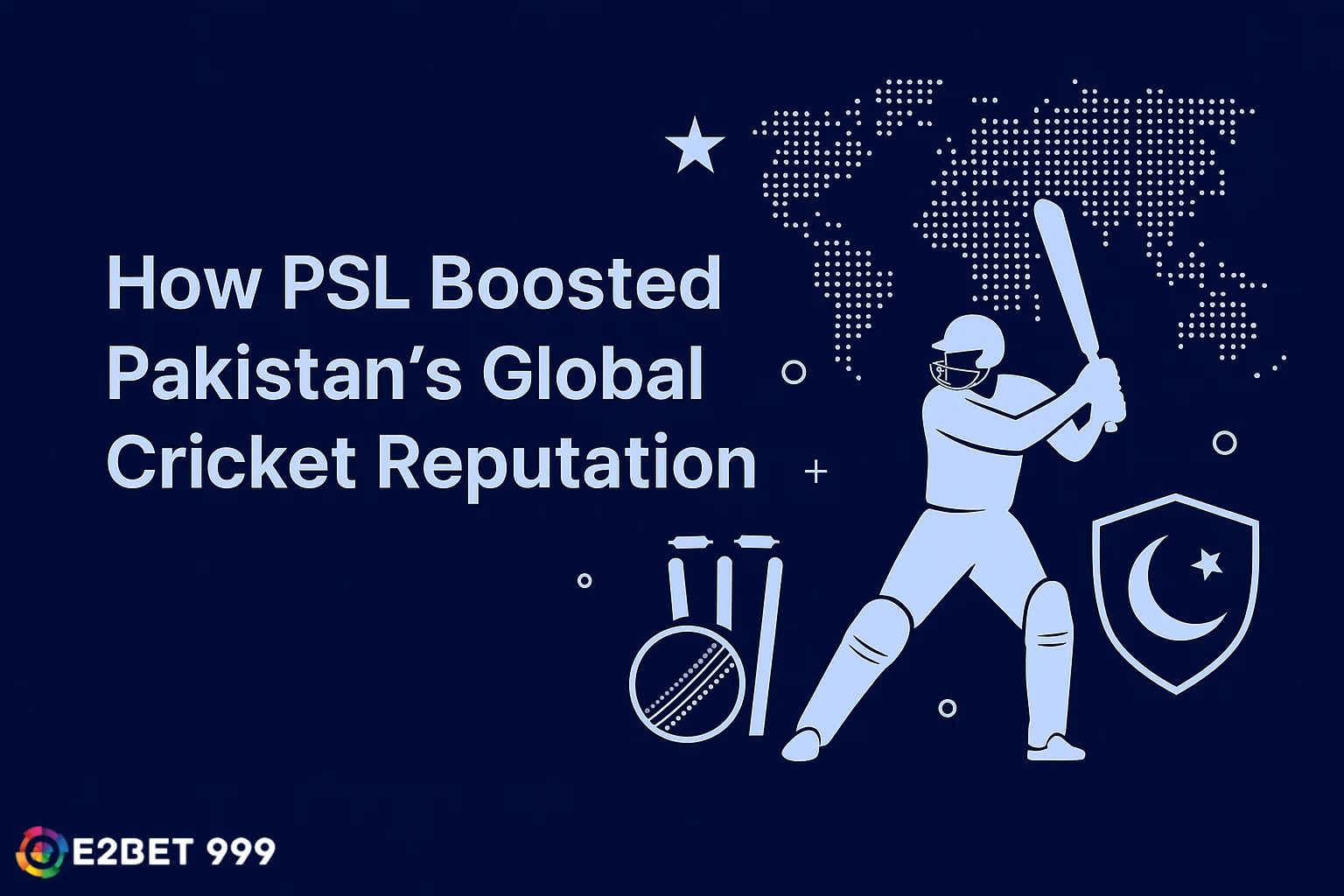Cricket in Pakistan is a sport and a passion that unites millions. Over the years, Pakistan has produced some of the world’s finest cricketers and unforgettable moments. However, political and security issues once overshadowed the country’s standing as a safe venue for international cricket. Enter the Pakistan Super League (PSL), a game-changer transforming Pakistan’s cricket reputation globally. Let’s dive deep into how PSL reshaped perceptions, boosted talent, and put Pakistan back on the cricketing world map with a bang.
The Birth and Growth of PSL
The Pakistan Cricket Board (PCB) introduced the PSL in 2015 to revitalize Pakistani cricket and draw interest worldwide. At first, the idea faced scepticism. Could Pakistan host a league attracting top players and global viewers amid security concerns? The answer came swiftly, as the PSL’s first season kicked off in the UAE with five teams and a modest fanbase. The league’s initial success started a thrilling journey that saw rapid expansion, including adding new teams and shifting some matches back to Pakistan.
PSL as a Platform for Talent Showcase
One of PSL’s most significant contributions has been spotlighting homegrown talent. Young Pakistani players have found a stage to prove their mettle against international stars. This exposure has improved player skills and caught the eyes of selectors worldwide. Players from nations like Australia, South Africa, and the West Indies are flocking to the PSL worldwide, giving it a competitive edge and worldwide attention. The league’s mix of emerging talent and seasoned pros has created a vibrant cricketing culture.

Improving Pakistan’s Cricket Infrastructure
PSL’s rise forced a transformation of cricket infrastructure in Pakistan. Historic stadiums were upgraded to international standards, and new venues emerged. In addition to creating jobs and stimulating local economies, this development reignited cricket’s appeal to the public. Importantly, hosting PSL matches in Pakistan gradually restored the country’s ability to hold international fixtures, which had been restricted for years.
Revamping Pakistan’s Image in Global Cricket
Previously, international teams often hesitated or refused to tour Pakistan due to security concerns, isolating the nation from top-tier cricket. PSL challenged this status quo by successfully hosting players and fans with robust security measures. International players’ participation reassured global audiences and cricket boards alike, rebuilding trust in Pakistan as a safe cricket destination. Consequently, international cricket slowly returned, culminating in full-member privileges and resumption of tours by top teams.
PSL’s Influence on Pakistan’s Cricket Diplomacy
Beyond sports, PSL has played a subtle but powerful role in cricket diplomacy. It has served as a bridge for fostering goodwill between Pakistan and other cricket-playing nations. Despite past geopolitical tensions, hosting international stars and teams highlighted cricket’s role as a unifier. This soft power has helped Pakistan restore its position on the global cricket council and among fans worldwide.
Economic and Social Impact of PSL
PSL’s success is not limited to the cricket pitch. The league has become a significant economic driver for Pakistan, attracting sponsorship deals worth millions, boosting tourism, and generating employment. The excitement around PSL brings communities together, fostering national pride and social cohesion. For many young Pakistanis, PSL represents hope and opportunity—proof that their country is again a thriving cricket hub.
Media and Broadcasting Reach
The PSL’s popularity exploded thanks to comprehensive global broadcasting deals. Matches are streamed and televised worldwide, making PSL an international spectacle. Social media platforms buzz with live updates, fan interactions, and viral moments. This digital engagement has turned PSL into a powerful brand ambassador, reshaping Pakistan’s image as a modern, vibrant cricketing nation.
Memorable PSL Moments That Shaped Reputation
PSL has produced countless unforgettable moments, from thrilling last-ball finishes to breathtaking bowling spells. Both up-and-coming players and cricketing greats like Shaheen Afridi and Babar Azam have demonstrated Pakistan’s skill on the international scene. These moments have inspired fans, garnered international respect, and emphasized that Pakistan’s cricket spirit is alive and kicking.
Challenges and Future Prospects
Despite its success, PSL faces challenges such as ensuring player safety, improving match attendance in Pakistan, and expanding its international footprint. The PCB is keen on increasing the league’s scale, inviting more global players, and exploring new markets. The future looks bright as PSL aims to become one of the world’s top T20 leagues, continuing to uplift Pakistan’s cricket reputation.
Conclusion
The Pakistan Super League has done more than entertain cricket fans; it has restored Pakistan’s image worldwide, fostered emerging talent, and revitalized cricket infrastructure and economy. PSL stands as a symbol of resilience and passion, proving that Pakistan remains a vital player on the global cricket stage. The journey of PSL is far from over, promising even greater achievements ahead.
FAQs
1. How did PSL help Pakistan host international cricket again?
PSL successfully demonstrated strong security and organizational capabilities, restoring confidence among international players and boards to tour Pakistan again.
2. Who are some notable players discovered through PSL?
Players like Shaheen Afridi, Haider Ali, and Mohammad Hasnain have gained prominence through PSL’s platform.
3. How has PSL impacted Pakistan’s economy?
The league has attracted sponsorships, boosted tourism, created jobs, and stimulated local businesses linked to cricket events.
4. What role does PSL play in Pakistan’s cricket diplomacy?
PSL fosters international goodwill by hosting foreign players and teams, helping Pakistan rebuild global cricket relations.
5. What are the future plans for PSL?
Key goals include expanding the league with more teams, enhancing global broadcasting, and hosting more matches domestically.
